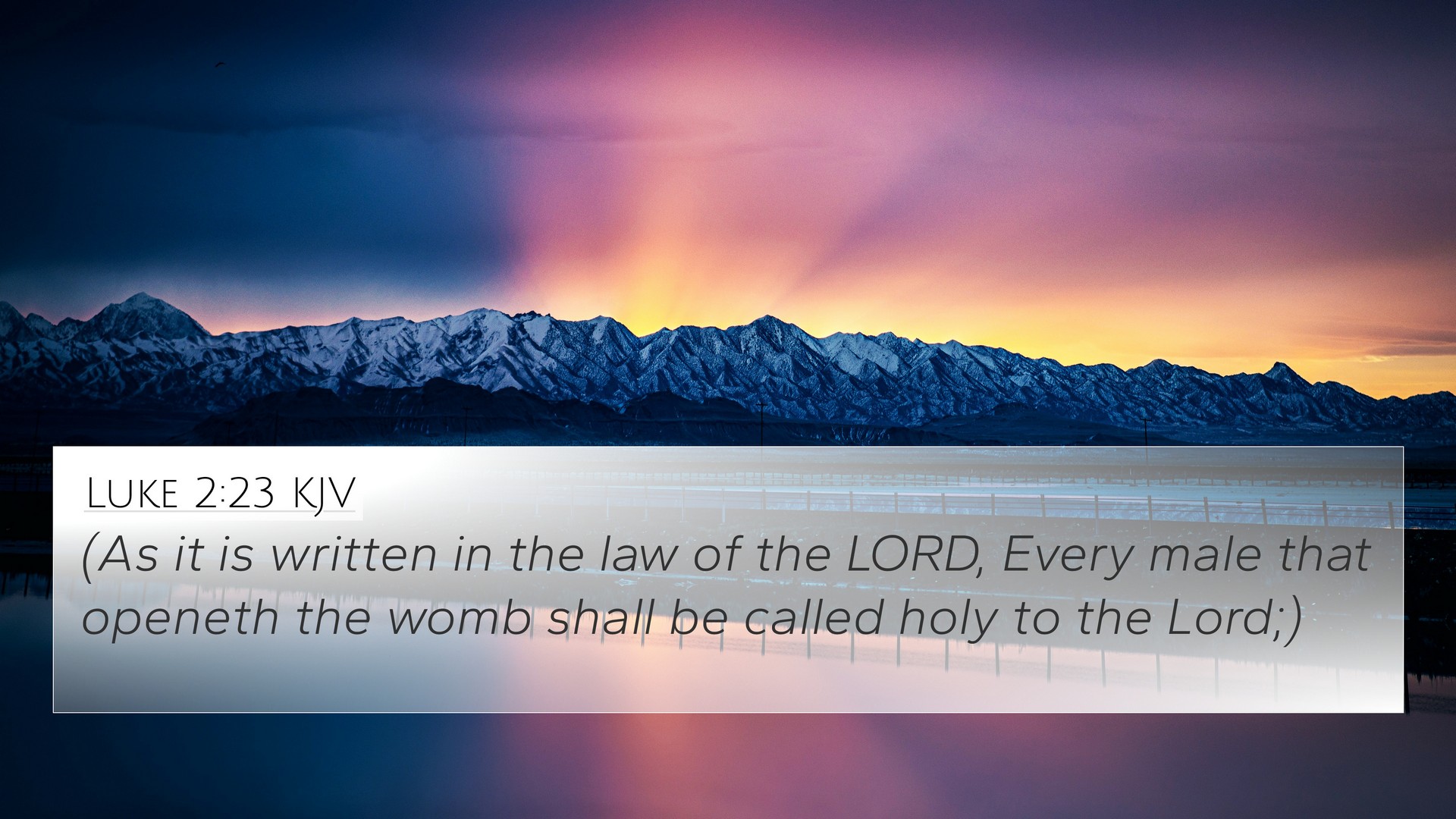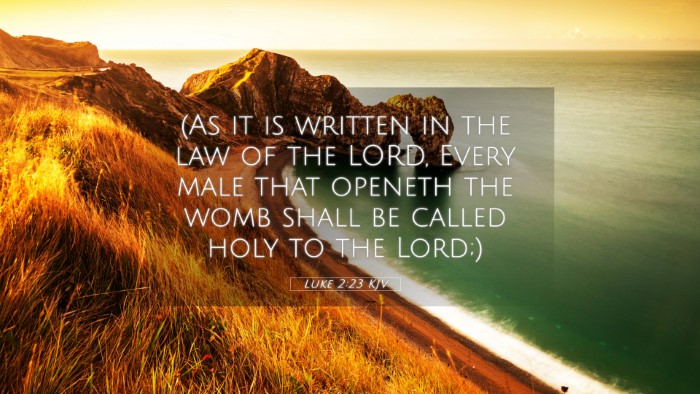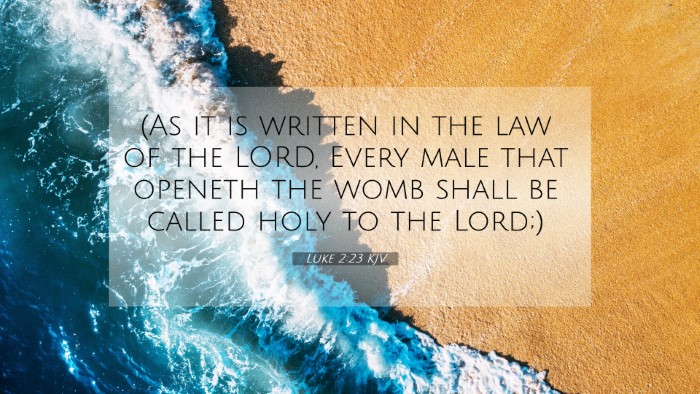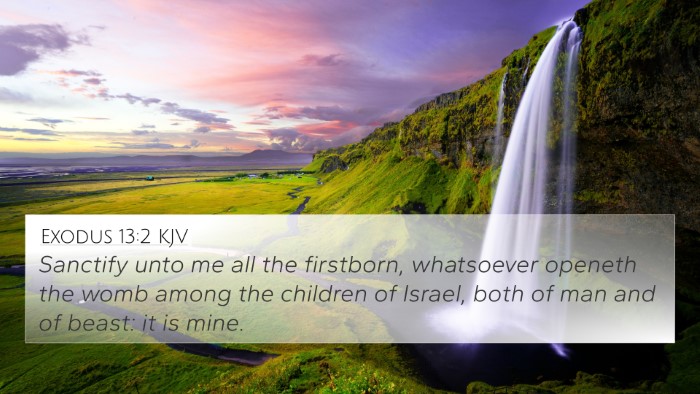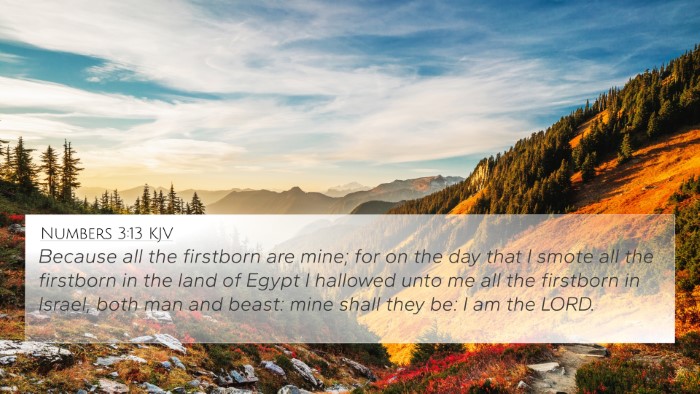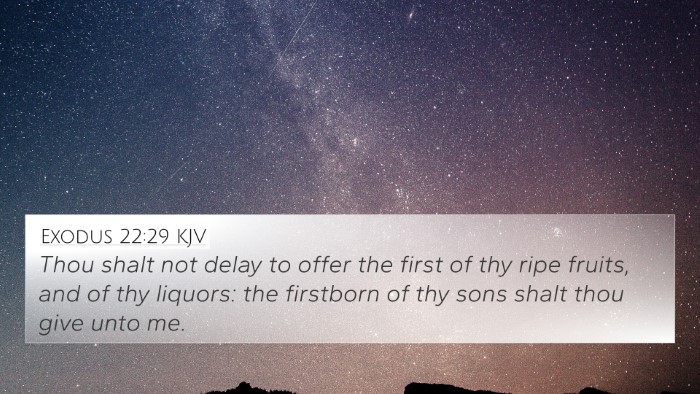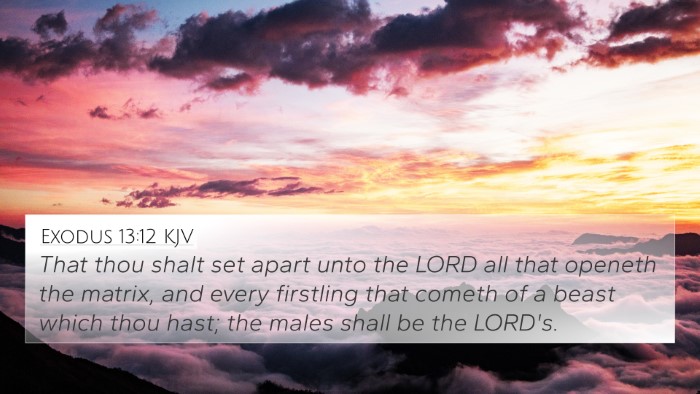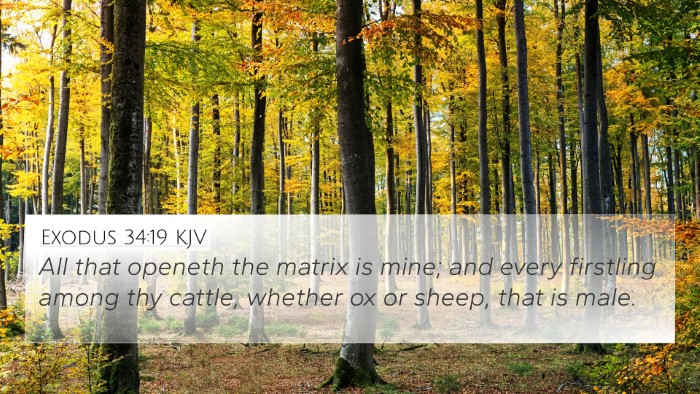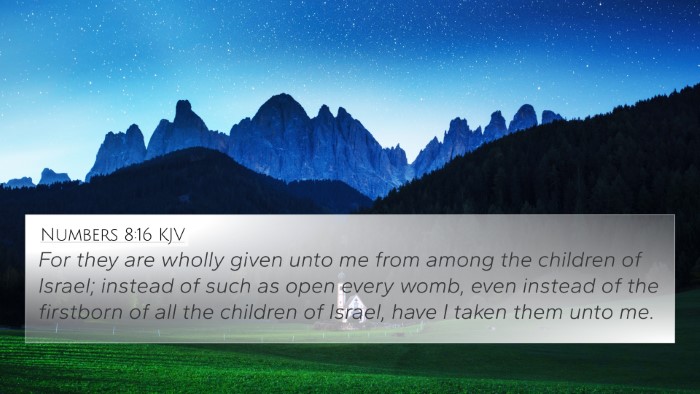Understanding Luke 2:23
Luke 2:23 states, "As it is written in the law of the Lord, Every male that openeth the womb shall be called holy to the Lord." This verse reflects the Old Testament practice outlined in the law regarding the presentation of firstborn sons to God. Following is a detailed analysis based on public domain commentaries.
Meaning and Context
In this passage, Luke emphasizes Mary and Joseph's adherence to the Jewish law after the birth of Jesus. Matthew Henry notes that this act was not only in obedience to the law but also a demonstration of their faithfulness to God’s commandments. Such adherence showcases the holy status attributed to the firstborn, which is deeply rooted in Israel's history.
Albert Barnes explains that this verse alludes to the requirement from Exodus 13:2, which states that the firstborn son must be consecrated to the Lord. This theological significance reflects the importance of recognizing God's provision and grace in the lives of families.
Adam Clarke further elaborates that the reference to “every male that openeth the womb” signifies not only the physical act of being born but also an invocation of God's blessing upon the child. The act of presenting Jesus in the temple serves to remind the believers of the covenant of grace endowed upon humanity.
Cross-References and Thematic Connections
Luke 2:23 has several critical cross-references that highlight its thematic depth and scriptural connections:
- Exodus 13:2 - Establishes the command for consecrating the firstborn, ensuring a direct link to the law.
- Leviticus 12:6-8 - Discusses purification following childbirth and the offerings required, underscoring the law's requirements.
- Numbers 3:13 - Affirms that every firstborn is God’s, denoting a special relationship.
- Luke 1:15 - Relates to the holiness of John the Baptist even before his birth, drawing parallels with Jesus.
- Hebrews 7:14 - References Jesus' lineage and the implications of His holiness and priestly role.
- Romans 8:29 - Talks about being conformed to the image of Christ, relating to His holiness.
- Matthew 1:21 - Connects to the divine purpose of Jesus as Savior, emphasizing His significance from birth.
- 1 Peter 1:19 - Calls Jesus the Lamb without blemish, reinforcing the theme of holiness.
- Colossians 1:18 - Describes Christ as the firstborn over all creation, paralleling Luke 2:23’s emphasis on Jesus respected as the firstborn and holy.
- John 1:14 - Speaks of the Word becoming flesh, further illuminating the extraordinary nature of Christ’s birth and His divine purpose.
Theological Implications
The presentation of Jesus in the temple and the declaration of His holiness carries significant theological weight. This act, rooted in the law, affirms the continuity of God's covenant with His people. Matthew Henry points out that such obedience highlights the dedication expected from all believers toward their children, demonstrating that even the Holy family followed divine guidelines.
Furthermore, the holistic understanding of this verse encourages readers to reflect on the broader biblical narrative. Albert Barnes identifies the necessity of holy living as outlined in the law while simultaneously recognizing the fulfillment of the law in Christ, further capturing the importance of Jesus' birth within the story of redemption.
Practical Applications
Understanding and applying Luke 2:23 challenges believers to consider their commitments to God’s ordinances. The dedication of children to God signifies a broader responsibility; just as Mary and Joseph presented Jesus, parents today are called to present their children in faith and commit to nurturing them in the ways of the Lord.
Conclusion
In Luke 2:23, the connections between the Old Testament law and the New Testament fulfillment exemplify the profound unity of scripture. Cross-referencing these themes aids in deepening biblical understanding and illustrates how the continuity of God’s plan unfolds through the life of Christ.
Final Notes on Cross-Referencing Biblical Texts
Utilizing tools for Bible cross-referencing is essential for in-depth study. Engaging in comparative Bible verse analysis not only enriches personal study but also enhances sermon preparation and individual faith journeys. Understanding the connections between Bible verses unveils a tapestry of divine truth that calls believers into a deeper relationship with God.
